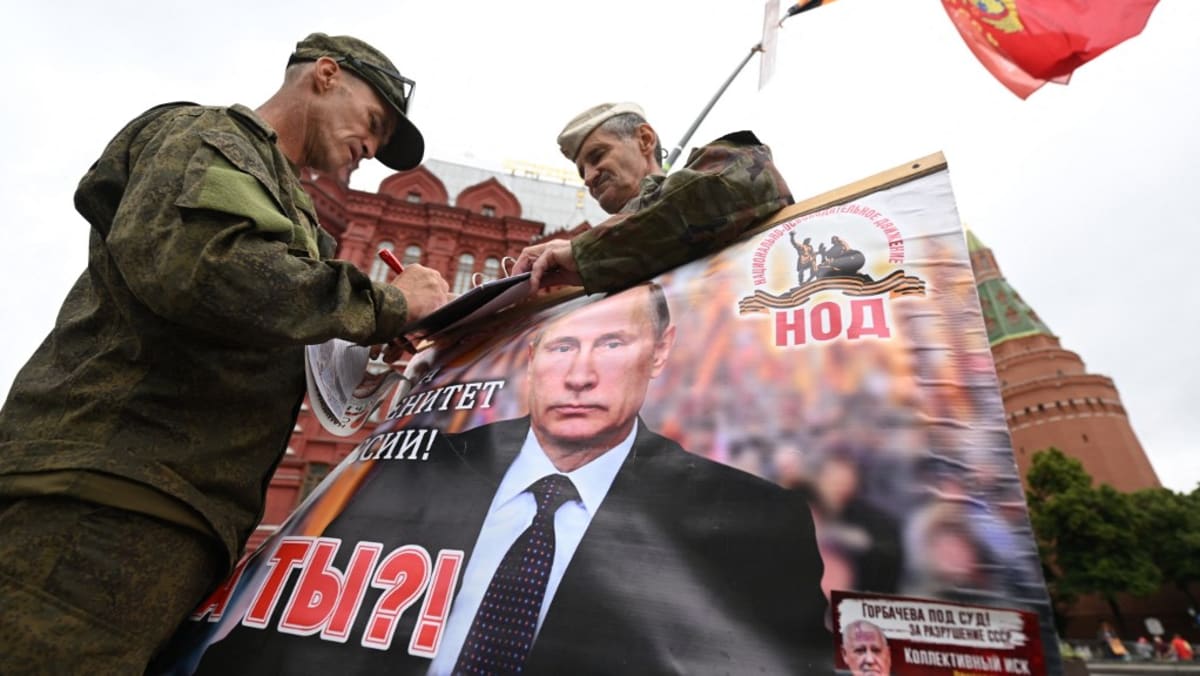
The Wagner mercenary group's mutiny marked the biggest challenge yet to Russian President Vladimir Putin's long rule and the country's most serious security crisis since he came to power in 1999.
The aborted weekend revolt led by Wagner chief Yevgeny Prigozhin - who declared a sudden pull-back after marching towards Moscow - damaged Putin's image, boosted morale among Ukrainian troops and generated confusion.
But has it weakened Putin’s grip on power? And how might it affect the course of the war in Ukraine?
Here is what analysts have to say.
What does the revolt say about Putin's position?
In a fiery speech on Saturday, Putin vowed to punish the mutiny's perpetrators, accusing them of treason and for pushing Russia to the brink of civil war.
Just hours later, however, he had accepted a deal brokered by Minsk granting an amnesty for the Wagner chief and his men, and exile to Belarus for Prigozhin himself.
This response could have harmed Putin's standing, said William Alberque, the director of strategy, technology and arms control at the International Institute for Strategic Studies (IISS).
"This episode weakens the credibility of Putin, who appeared to be in panic on television on Saturday," he said.
"Everyone in Moscow is wondering: 'If it was a five-minute insurrection, why did the president talk about civil war?'"
Nigel Gould-Davies, senior fellow for Russia and Eurasia at IISS and a former British ambassador to Belarus, said that the incident "has sowed really profound anxiety across Russia's elites".
"It's one more example, after the launching of the invasion against Ukraine itself and the disastrous conduct of the war, one more example of Putin just being out of time and having consistently poor judgment and making mistakes, and the history of other times and places shows that an apparently very, very strong personalistic leader of the Putin type can, with great suddenness, lose authority and power if a critical mass of elites ceased to have confidence in his ability to keep the ship of state going and to protect their interests," he said.
"So the immediate crisis may be averted, but the longer-term consequences will ripple out and are changing Russia's political landscape, I would say."
"The most important thing is that the failures of Russia's war in Ukraine are reverberating increasingly within Russia itself and beginning to create instability and uncertainty and division at home," Gould-Davies added.
Speaking to CNA on Sunday, senior adviser on Russia and Europe at the United States Institute of Peace Donald N Jensen said that the future looked bleak for Putin.
"We are not yet seeing the whole drama play out. This is just some deal that we don't even hear the details about. I think in the coming weeks and months, it's going to play out with more specificity," said Jensen, who also served as a diplomat at the US embassy in Moscow.
"The big loser is Putin. I think we now have to talk about the end, perhaps, of his political career in the coming weeks and months. This has not been a good episode for the Russian president."
Pointing to the scenes on the streets of Rostov-on-Don on Saturday, Jensen also spoke about a lack of unity in Russia.
"A lot of people were taking selfie pictures, a lot of people were friendly towards the Prigozhin-Wagner troops – this is not a good sign," said Jensen.
"Putin - at a time when the country is under great stress - needs a unified home front. And clearly, the home front in Russia is not unified anymore."
https://news.google.com/rss/articles/CBMiZmh0dHBzOi8vd3d3LmNoYW5uZWxuZXdzYXNpYS5jb20vd29ybGQvd2FnbmVyLXJlYmVsbGlvbi1wdXRpbnMtcG93ZXItZXJvZGluZy1uZXh0LXN0ZXBzLXVrcmFpbmUtMzU4NjcyNtIBAA?oc=5
2023-06-26 07:11:37Z
2167194887
Tidak ada komentar:
Posting Komentar